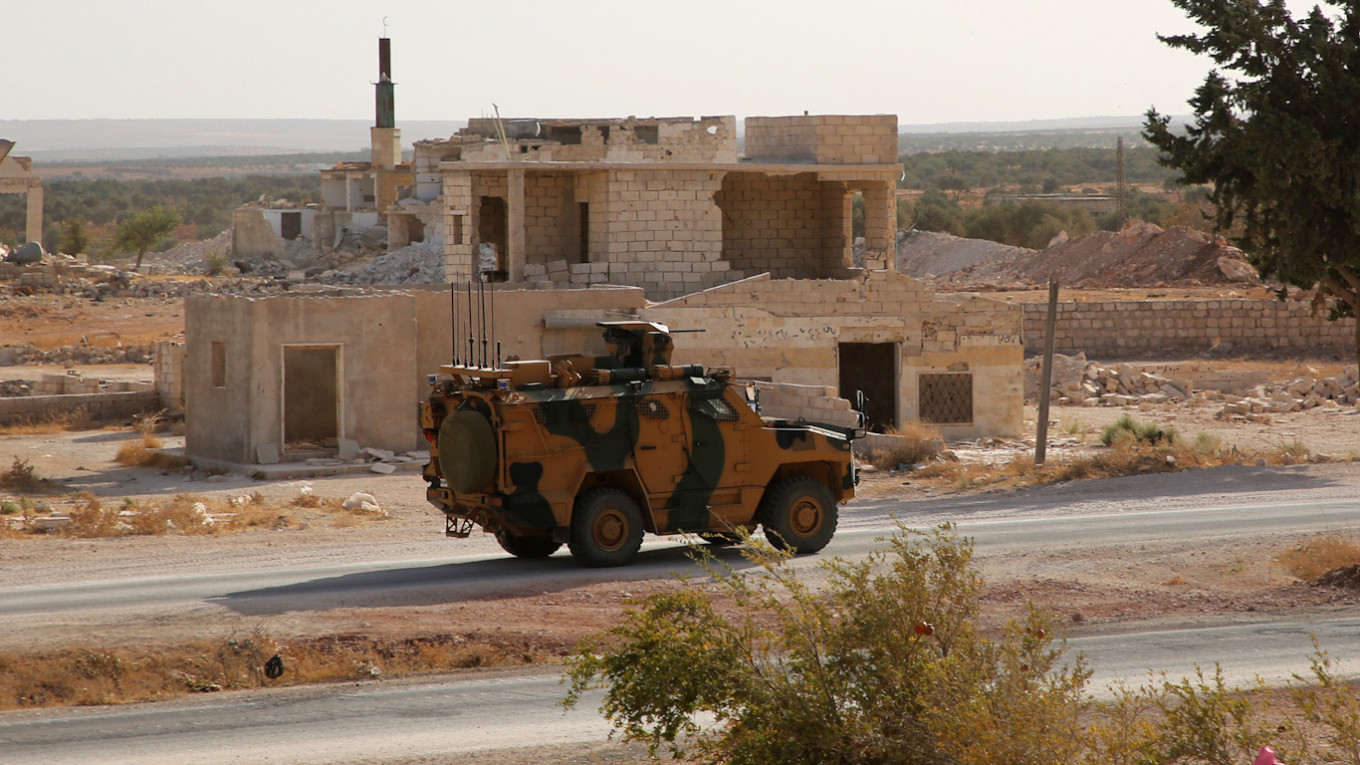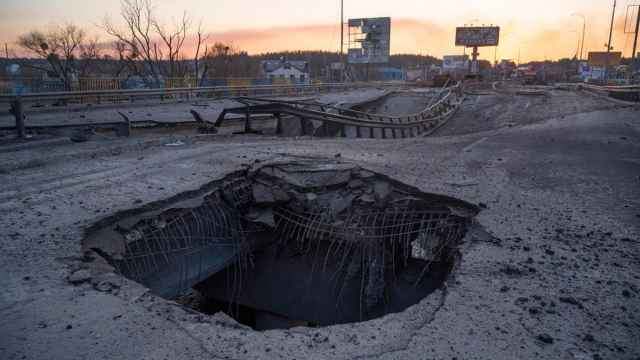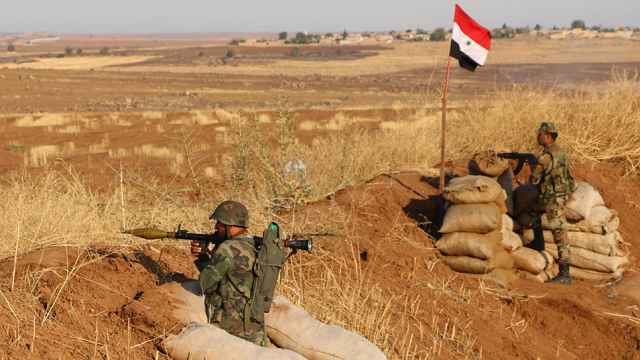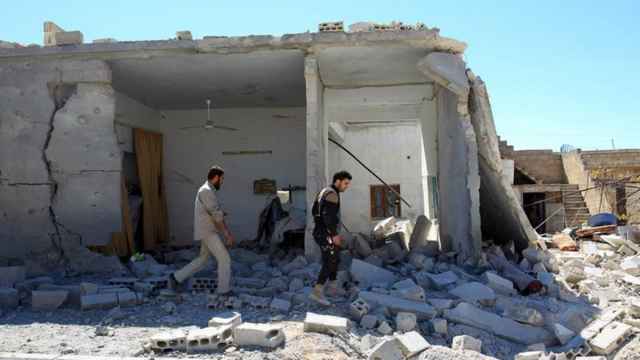Airstrikes by Damascus regime ally Russia killed 78 Turkey-backed rebels in northwestern Syria on Monday, a monitor said, in the bloodiest surge in violence since a truce almost eight months ago.
More than 90 others were wounded when Russian warplanes targeted a training camp of the Faylaq al-Sham faction in the Jabal Duwayli area in Idlib province, the Syrian Observatory for Human Rights said.
In early March, a truce brokered between Moscow and Ankara stemmed a deadly months-long Russia-backed regime military offensive on the country's last major rebel stronghold in Idlib.
That onslaught from December had displaced almost a million people from their homes in one of the worst humanitarian crises of the nine-year civil war.
Observatory head Rami Abdel Rahman described Monday's strikes as the "deadliest since the ceasefire came into force."
The National Liberation Front, an umbrella group of Ankara-backed rebels based in Idlib that includes Faylaq al-Sham, told AFP that Monday's Russian strikes hit one of its positions and caused casualties. It did not give an exact death toll.
NLF spokesman Sayf Raad denounced the "Russian aircraft and regime forces continuously violating the Turkish-Russian deal in targeting military positions, villages and towns."
Of the almost 1 million people displaced in the last Idlib offensive, more than 200,000 have returned home to their towns and villages, most since the ceasefire went into force.
The March truce has largely held, despite some intermittent bombardment in the area from both sides.
Russian airstrikes have from time to time targeted military positions, including those of Turkey-backed groups, Abdel Rahman said.
UN envoy visit
The U.S. Army on Thursday said it carried a drone strike against Al-Qaeda leaders in northwestern Syria, with the Observatory reporting 17 jihadists killed at a dinner gathering.
Hayat Tahrir al-Sham, led by Syria's former Al-Qaeda affiliate, and allied rebels dominate the region of some 3 million people, around half living in camps after being displaced by fighting in other parts of the country.
Last week, Turkey withdrew from one of its largest outposts in northwestern Syria which had been encircled for the past year by Syrian regime forces.
The outpost in Morek had been Turkey's largest in Hama province, most of which is now under Syrian government control.
After a string of military victories backed by Russia, the Syrian government has regained control of around 70% of the country, the Observatory says.
Syria's war, which broke out after the brutal suppression of anti-government protests in 2011, has killed more than 380,000 people and displaced millions inside the country and abroad.
Endless rounds of UN-backed peace talks have failed to stem the bloodshed and in recent years have been largely overtaken by a parallel negotiations track led by Russia and Turkey.
On Sunday, UN envoy to Syria Geir Pedersen visited Damascus and met Syrian Foreign Minister Walid Muallem.
Pedersen afterwards said the meeting "touched upon all issues related to Security Council resolution 2254" for a political solution to the conflict.
"It's my hope that meetings we have had today and meetings we will continue to have could be the beginning of something new," he said.
The UN envoy said he would then hold talks with members of the political opposition.
"Hopefully we can see if it's possible to find more common ground on how to move this process forward," he added.
A Message from The Moscow Times:
Dear readers,
We are facing unprecedented challenges. Russia's Prosecutor General's Office has designated The Moscow Times as an "undesirable" organization, criminalizing our work and putting our staff at risk of prosecution. This follows our earlier unjust labeling as a "foreign agent."
These actions are direct attempts to silence independent journalism in Russia. The authorities claim our work "discredits the decisions of the Russian leadership." We see things differently: we strive to provide accurate, unbiased reporting on Russia.
We, the journalists of The Moscow Times, refuse to be silenced. But to continue our work, we need your help.
Your support, no matter how small, makes a world of difference. If you can, please support us monthly starting from just $2. It's quick to set up, and every contribution makes a significant impact.
By supporting The Moscow Times, you're defending open, independent journalism in the face of repression. Thank you for standing with us.
Remind me later.






